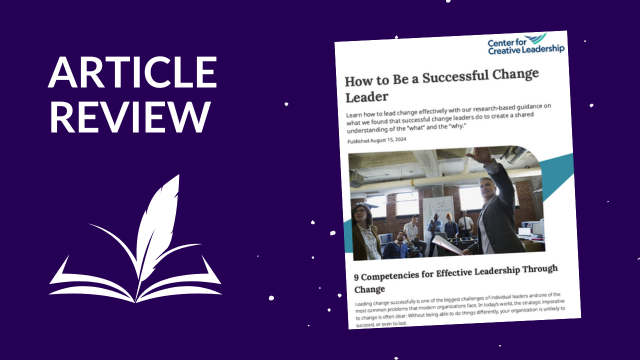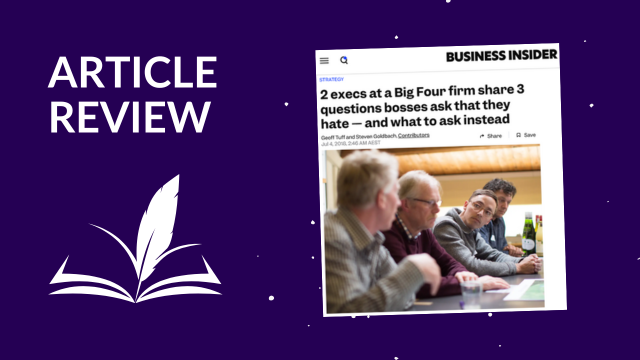As change practitioners, we know that having the right leadership for the initiatives we support is critical. The Center for Creative Leadership conducted a study to determine what those change leadership skills are. Participants were senior executives “with more than 15 years of management experience, responsibility for 500 or more people, and decision-making authority as members of top management teams.” Through the study, they identified nine characteristics of change leaders falling into three categories.
The Three-C’s of Change Leadership
- Successful change leaders see communication as a critical part of their role. When communicating they focus on the why of the change as well as the what. Their communications become even more powerful when they are connected to the values of the organization.
- Successful change leaders are not bound by structure and silos. They bring employees into the decision-making process early, engaging the needed resources for collaboration both in planning and executing change.
- Successful change leaders don’t expect others to commit to changes that they are not fully on board with themselves. They experience their own discomfort while moving through change but are persistent in sustaining the change process until the desired results are achieved. By contrast, unsuccessful leaders are impatient with results and do not display an ongoing commitment.
Leading the Change Process
The study also identified three characteristics of successful change leadership in leading the process.
- They ensure that they are engaged in a process that develops a clear vision and case for change, as well as alignment around achieving it.
- Successful change leaders are involved in the change strategy, including identifying what will change and what will not.
- They stay involved throughout the execution of the change, monitoring progress, ensuring the right people are put into the right positions and that the wrong people for those positions are removed. They ensure that small wins are celebrated, and momentum is maintained.
Leading the People
Successful change leaders ensure that they maintain a focus on the people side of change.
- “Successful change projects were characterized by leaders removing barriers to employee success. These include personal barriers such as wounded egos and a sense of loss, as well as professional barriers such as the time and resources necessary to carry out a change plan.”
- Successful change leaders pay attention to those who can influence others and bring them on board with the change.
- They don’t assume they have all the answers or that they won’t make mistakes. They learn from their own experience and they learn from others along the way.
As you look at your change leaders, how well do they exhibit these nine characteristics? How can you coach them to become more skilled in their change leadership? As you contract with change leaders in the future, be prepared to put forward these nine mindsets and behaviors as expectations of them in order for the change to be successful.







